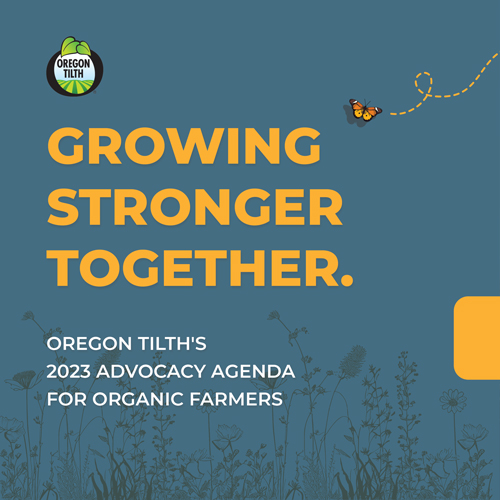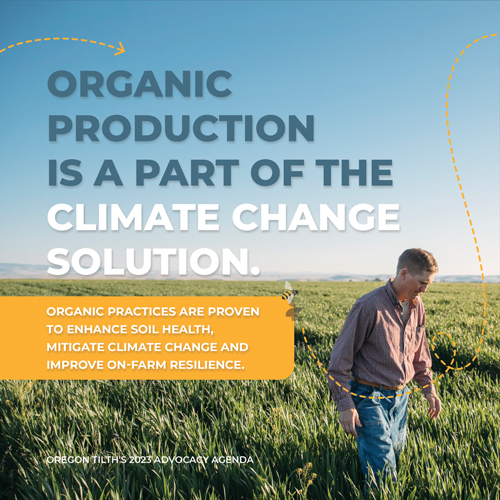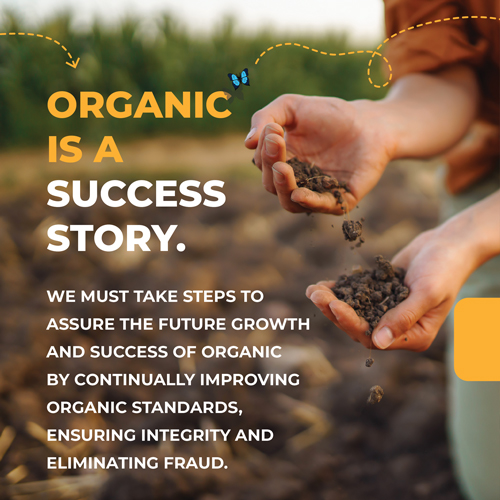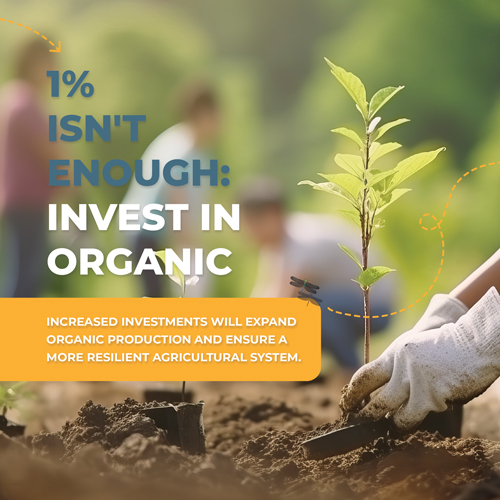- About
- Education
- Certification
- Get Involved
- Stories
-
Search
Help Center
-
Certification
-
Education
- About
Advocacy
BUILDING A BRIGHTER FOOD FUTURE
Our Advocacy Work
Advocacy is instrumental in realizing our vision of a brighter food future. We advocate for the change we want to see by building relationships, sharing our technical expertise and elevating our stories. We work with decision makers, legislators, agency administrators and other stakeholders. We frequently work in coalition with individuals and organizations that are pursuing similar objectives at the local, state and federal levels.
Interested in Getting Involved?
Climate Change Solutions and Resilience
Farmers and ranchers across the country are facing the impacts of climate change on a daily basis. Organic production is a part of the climate change solution. Organic practices are proven to enhance soil health, mitigate climate change and improve on-farm reiliancy. As actions are taken to adapt to and mitigate the impacts of climate change, these producers and practices should be robustly supported.
Organic Integrity and Continuous Improvement
Organic is a success story. Organic products are widely available and consumer demand has never been greater. We must take steps now to assure the future growth and success by continually improving standards, ensuring organic integrity and eliminating fraud.
Investment in Organic
Despite the success and growth of the organic sector, organic agriculture suffers from a lack of investment. For example, while organic products represent about six percent of all U.S. food sales, organic management systems only receive about one percent of USDA agricultural research funding. Increased investments will expand organic production and ensure success of these businesses.
2023 Farm Bill
As an important part of our advocacy work at Oregon Tilth, we will be working to shape the next Farm Bill. The federal Farm Bill is an enormous package of legislation that has a tremendous impact on farms and food production.
Every five years, the farm bill expires and is updated through an extensive process. The current Farm Bill (enacted in 2018) will expire next year and the process to draft the next Farm Bill has already begun with hearings in the Spring of 2022.
Oregon Tilth’s Farm Bill advocacy will focus on conservation programs, support for transition to organic, certification cost-share, organic-focused research and extension, crop insurance and other important programs.





- About
